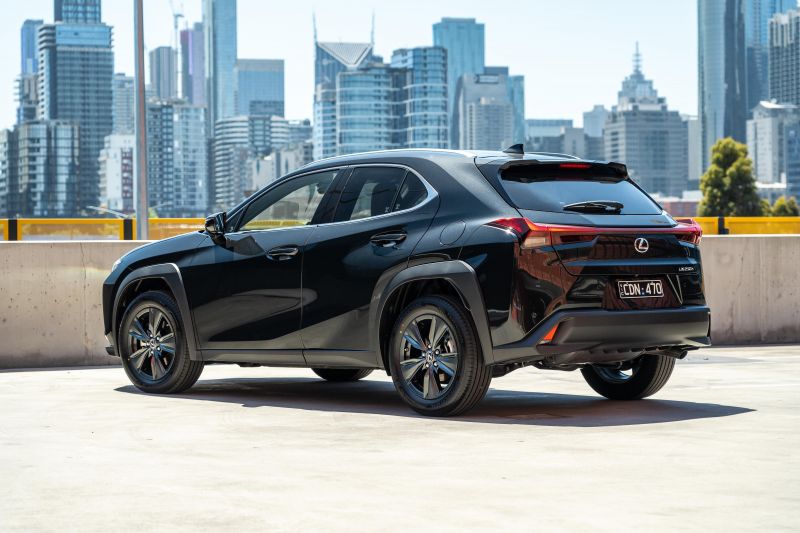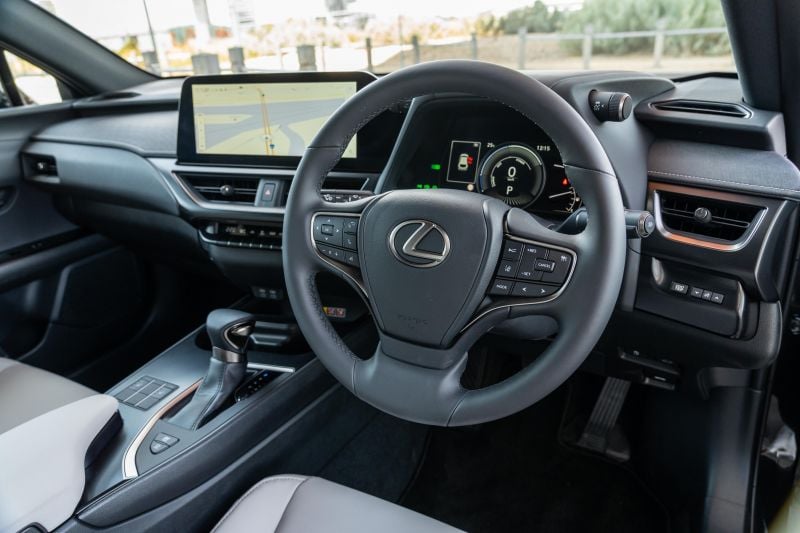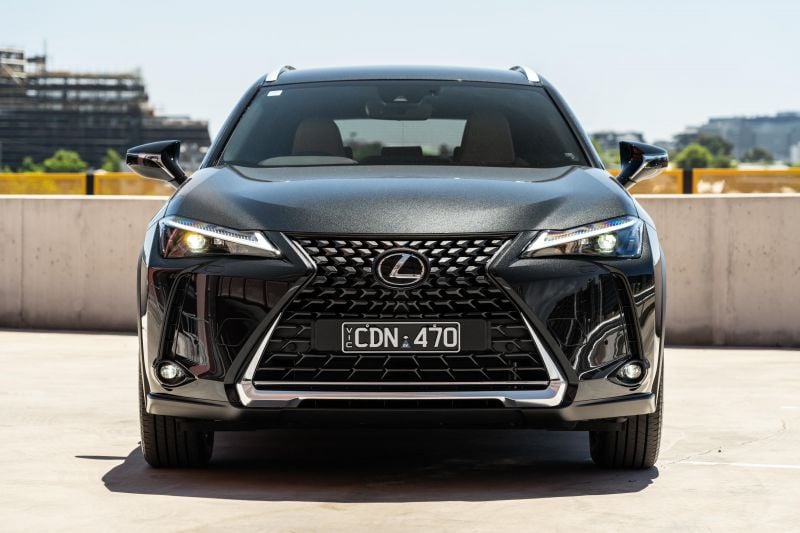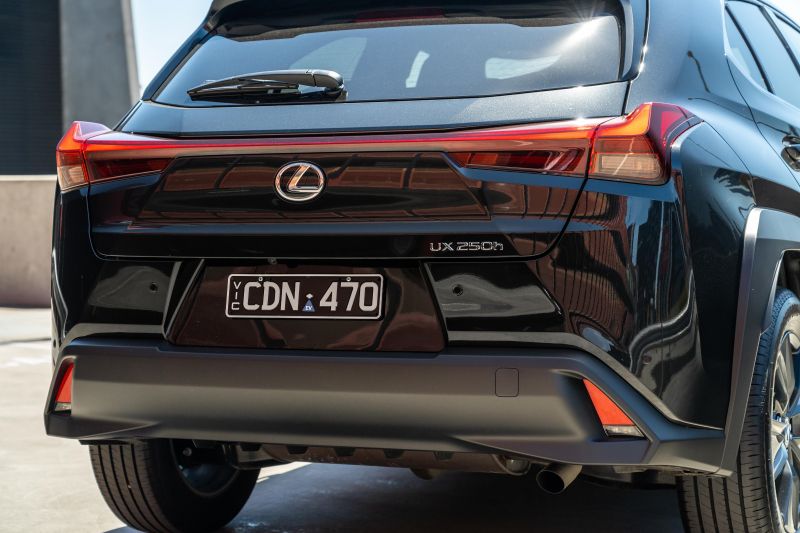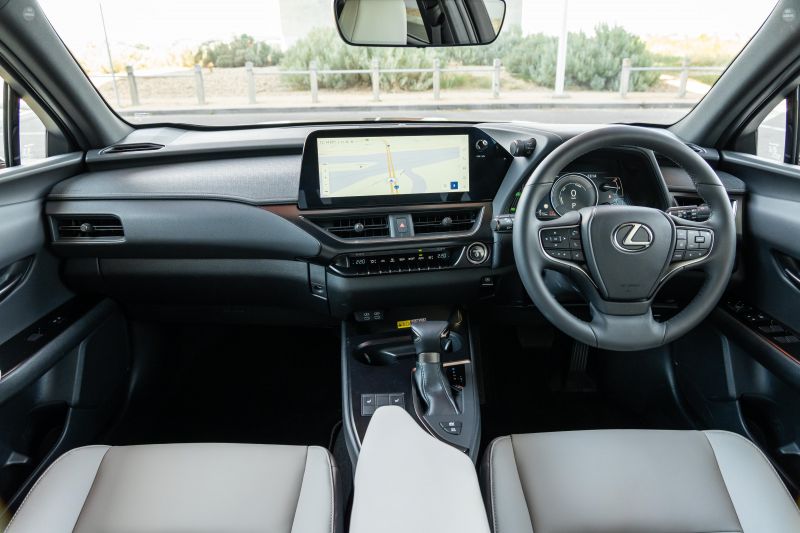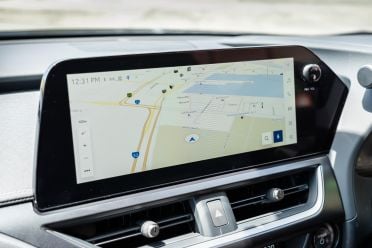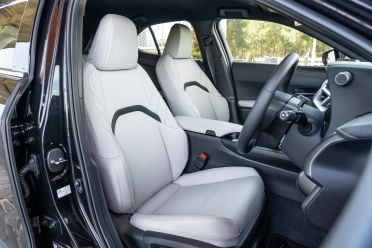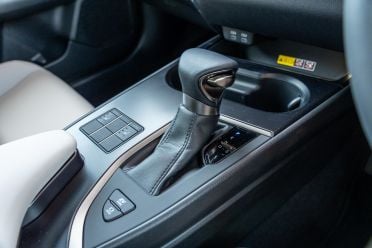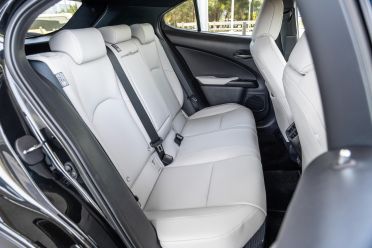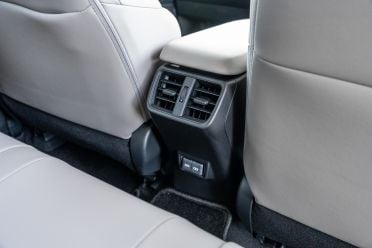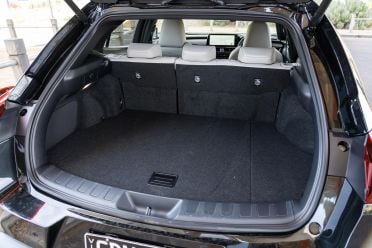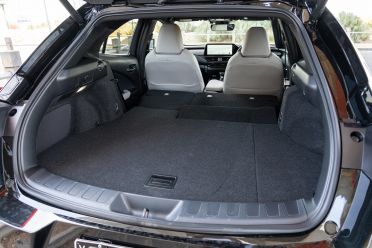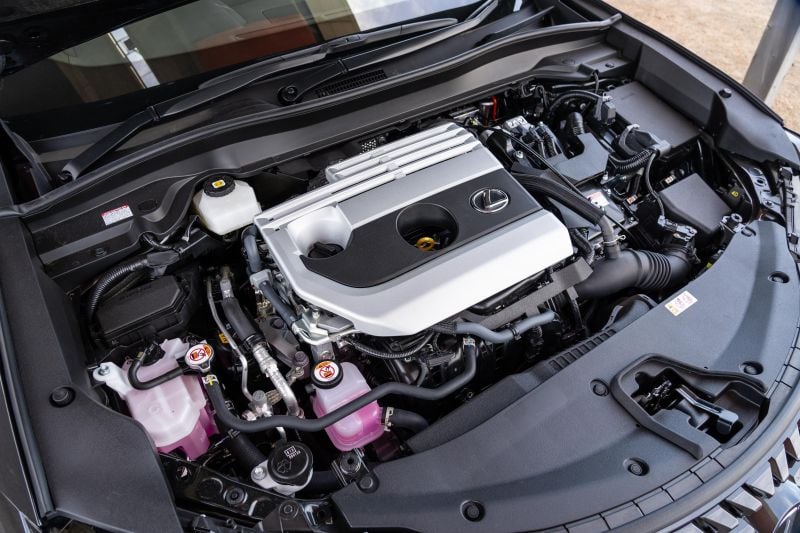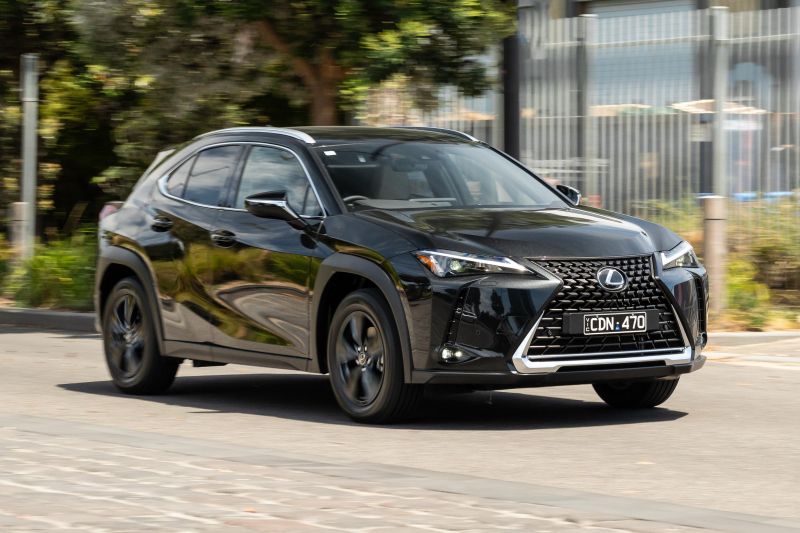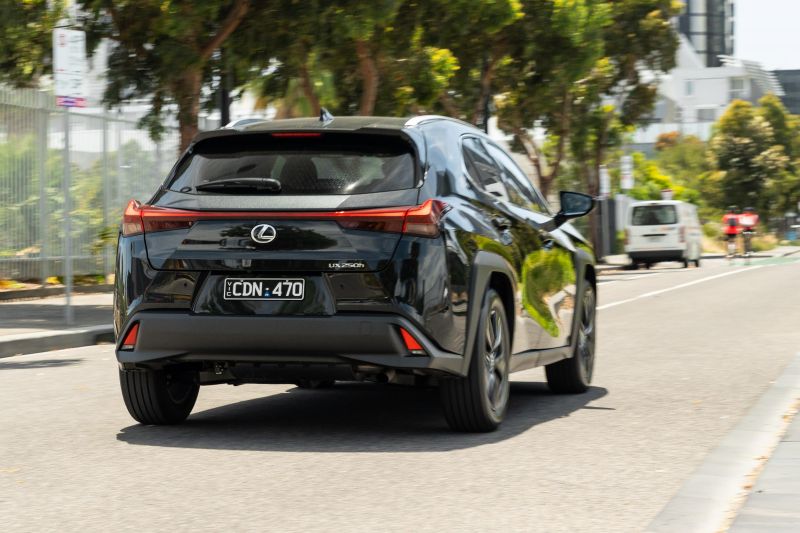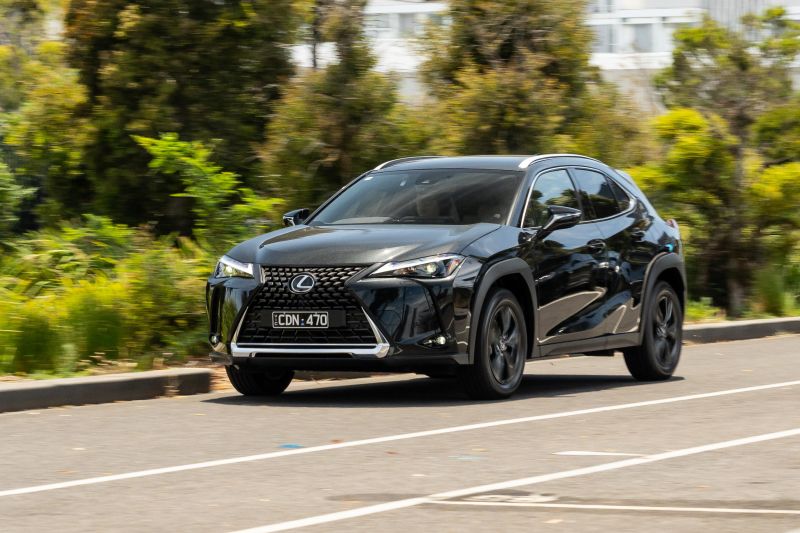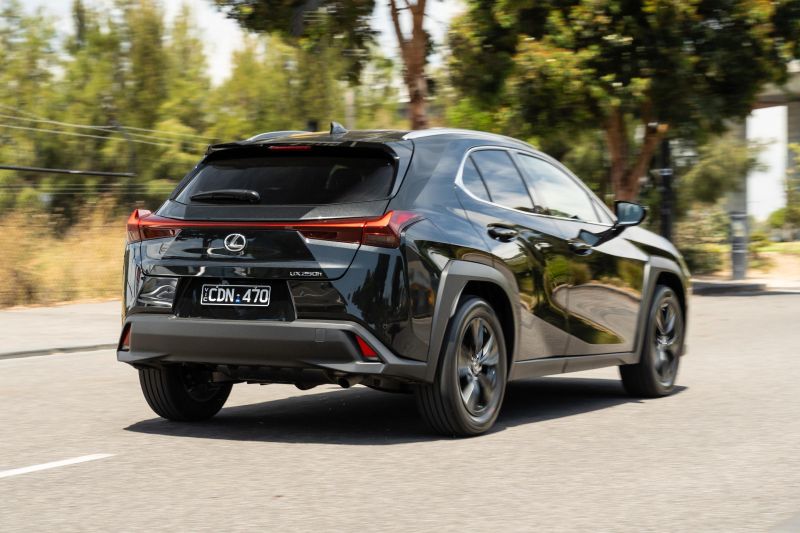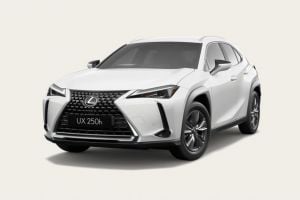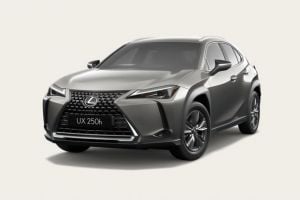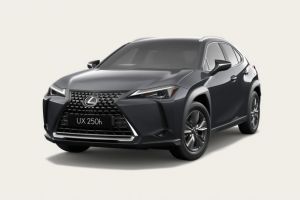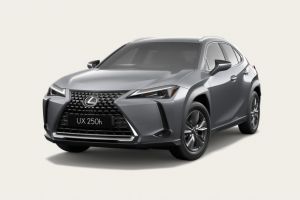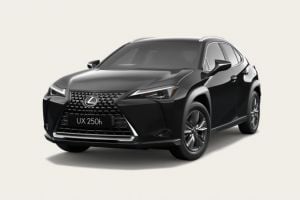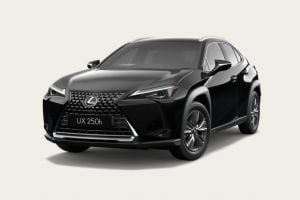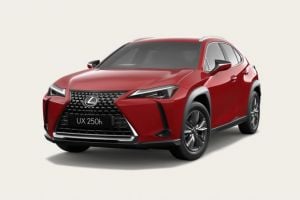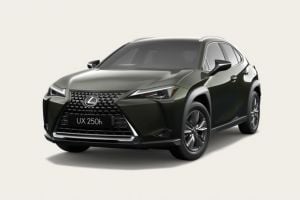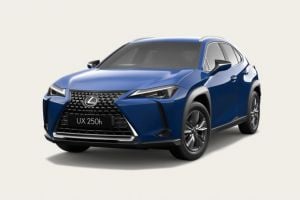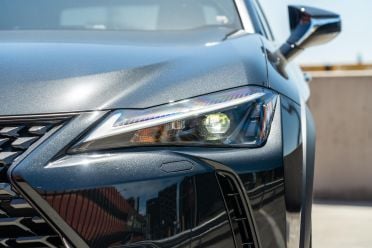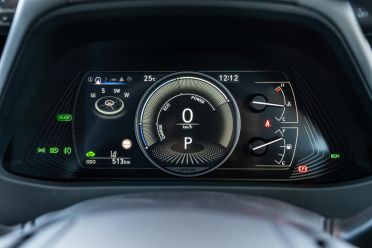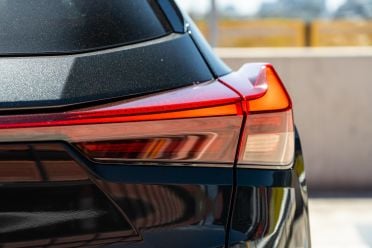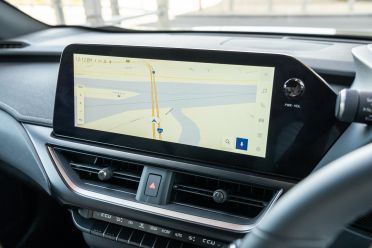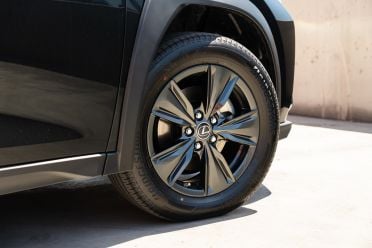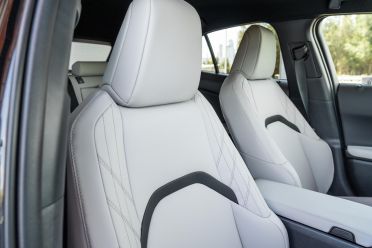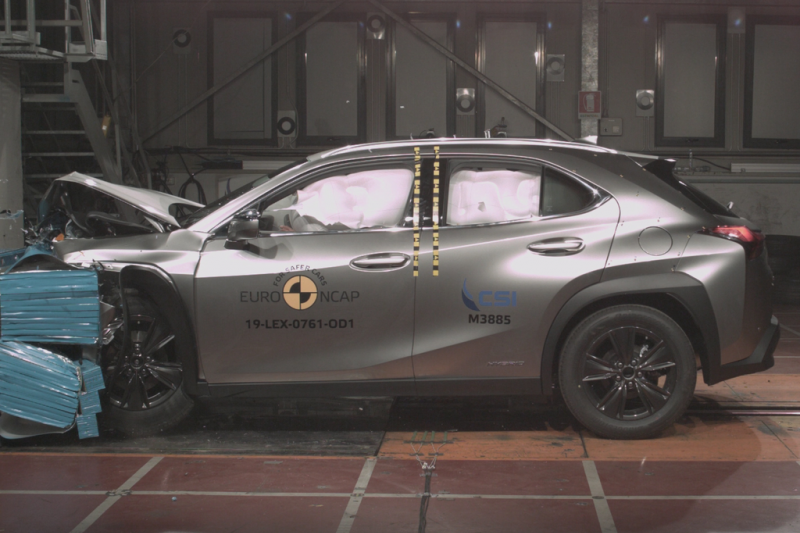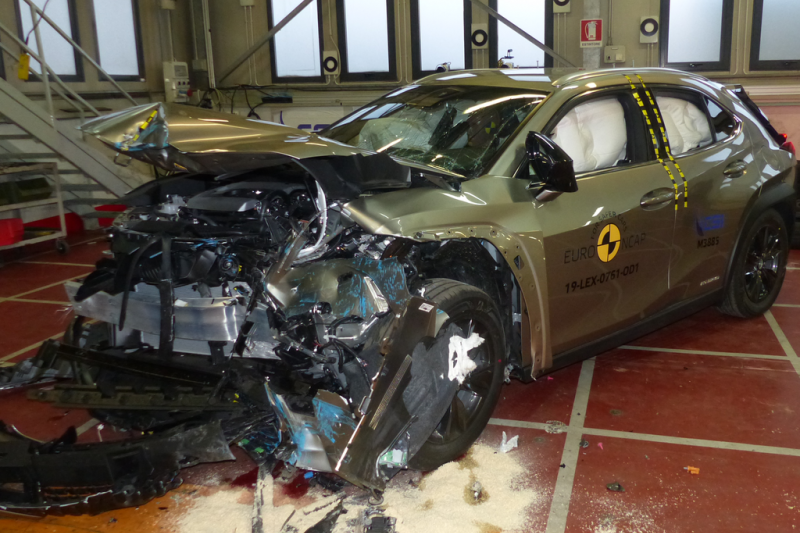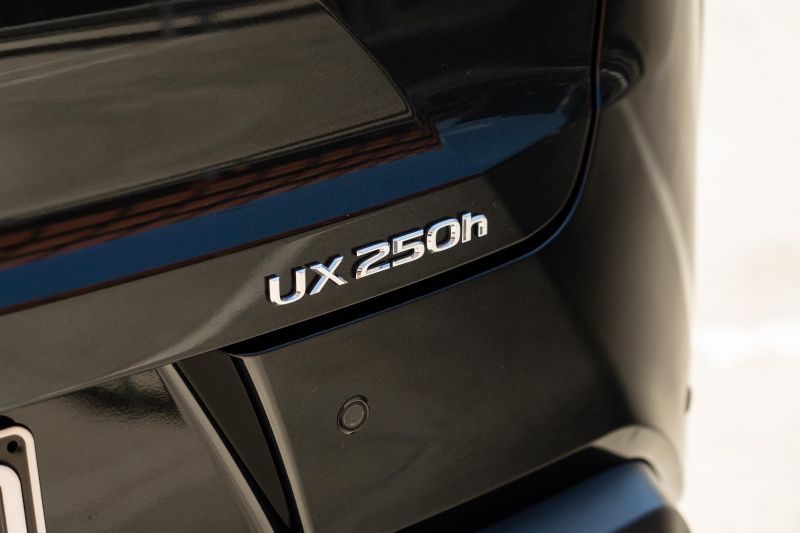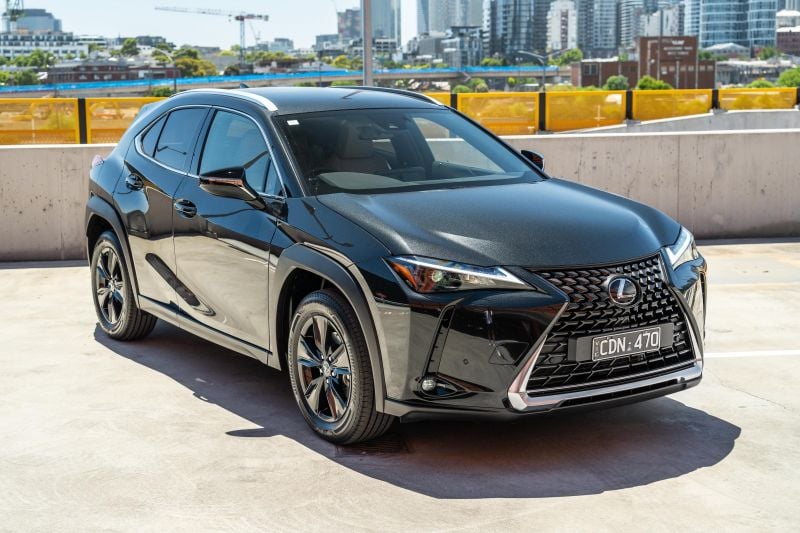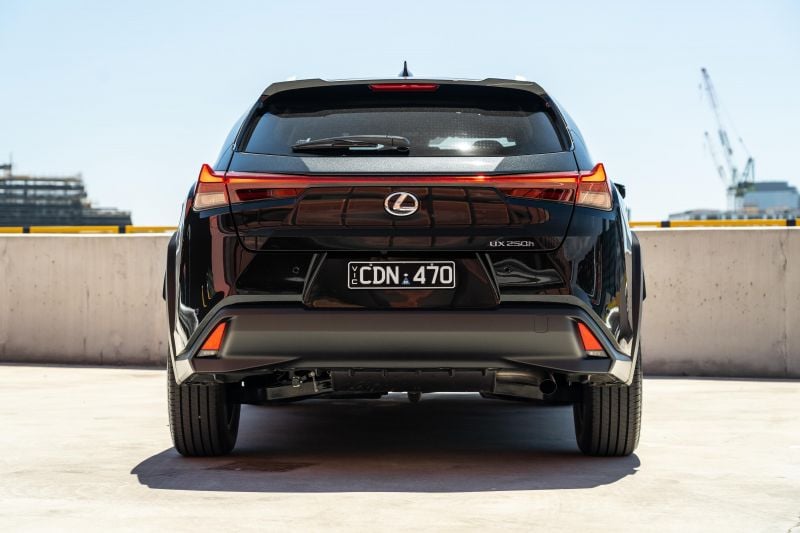The angular Lexus UX compact crossover has received a mid-life update – not that you could really tell.
For 2023 there’s been a range of enhancements to the spec sheet and under the skin, though only the F Sport versions receive any distinguishable exterior features in the form of body-coloured bumpers.
Highlights include a new, larger infotainment unit with wireless smartphone mirroring and connected functions, a beefier standard sound system, a stiffer chassis, as well as retuned steering and shocks for better handling.
These upgrades have come with price rises. On test we have the most affordable hybrid variant, the 2023 Lexus UX250h Luxury + Enhancement Pack 2 – priced from $53,820 before on-road costs, or $1795 more than before.
Lexus still has a fairly unique position in the premium segment, in that it offers a hybrid option locally – though most offer mild-hybrid and plug-in hybrid power overseas.
With its edgy styling and miserly hybrid drivetrain, does the Lexus UX deserve your attention?
How much does the Lexus UX250h Luxury cost?
As noted earlier, the vehicle you see here retails from $53,820 before on-road costs.
That’s a little dearer than the pre-update model (up $1795) but it’s still positioned at the lower end of the range and indeed the lower end of the premium small SUV segment.
With the Enhancement Pack 2 specification, the Lexus UX manages to cram in quite a lot of kit that would usually be optional in rivals, while electrification is a rarity at this end of the market.
Volvo’s mild-hybrid XC40 Plus B4 costs similar money ($53,490), while equivalently-priced Audi Q3 (from $50,600) is currently turbo petrol-only across the range.
The BMW X1 (from $60,400) and Mercedes-Benz GLA (from $63,200) are priced significantly higher than the Lexus in this specification, while the most affordable Mini Countryman SE plug-in hybrid ($64,000) offers usable electric range but again is more expensive.
Perhaps the Lexus’s closest like-for-like rival from beyond the Toyota stable is the Kia Niro HEV, which in top-spec GT-Line guise is a stone’s throw from the Lexus on test at $50,030 plus on-road costs.
2023 Lexus UX pricing:
- Lexus UX200 Luxury: $46,085 (+$1640)
- Lexus UX250h Luxury + Enhancement Pack 2: $53,820 (+$1795)
- Lexus UX200 Sports Luxury: $56,850 (+$1600)
- Lexus UX200 F Sport: $57,495 (+$1745)
- Lexus UX250h Sports Luxury: $60,850 (+$1750)
- Lexus UX250h F Sport: $61,495 (+$1895)
- Lexus UX250h Sports Luxury AWD: $65,350 (+$1750)
- Lexus UX250h F Sport AWD: $65,995 (+$1895)
Prices exclude on-road costs
MORE: 2023 Lexus UX price and specs
What is the Lexus UX250h Luxury like on the inside?
While the updates inside and out are relatively minor, the interior tech upgrade is very welcome.
Key to the update is a new 12.3-inch central touchscreen that’s a development over the old 10-inch display in terms of screen real estate, but also in terms of software and connectivity.
The latest generation software is present here with faster response and load times, updated mapping, enhanced resolution and graphics, as well as new connected services – including an intelligent voice assistant and online navigation.
Unlike Toyota – which usually offers just a year’s worth of connected services before charging customers for the full feature set – Lexus Connected is complementary for the first three years of ownership.
Lexus has also brought the touchscreen closer to the driver to improve usability, and the old mousepad-style touch controller is gone to free up more space on the centre console.
Inputs on such a large screen can be a little challenging on the move, so some may prefer having a rotary controller like BMW iDrive, for example. However, I can confirm this is a welcome upgrade compared to Lexuses of old.
Our Luxury-spec tester isn’t available with the 13-speaker Mark Levinson premium audio system of higher grades, but even the standard 10-speaker audio tested here is pretty good for the class with clear and deep sound.
Rounding out the spec sheet are DAB radio, wireless Apple CarPlay and wired Android Auto. Wireless CarPlay worked faultlessly during our time with the UX, and the wireless phone charger ensured I didn’t run out of juice on longer trips.
The front seats are some of the most comfortable in class, with good bolstering and support all-round. Props to Lexus for giving its most affordable model a similar experience to its higher end offerings in this regard.
Likewise the steering wheel is a familiar unit plucked from higher up in the range, offering a nice solid feel and a soft, smooth finish for the rim. It’s quite nice to hold, if not quite as sexy as the F Sport wheel.
Luxury and Sports Luxury versions of the UX get a more basic digital instrument cluster compared to the F Sport, with a fixed ring outline that serves as a border for the virtual dial. It’s a clean but uninspiring layout that doesn’t have the same wow factor as the units becoming increasingly common in the segment – both mainstream and premium.
The Luxury gets manual reach and rake adjustment for the steering wheel, though there is power adjustment further up in the range which is unique at this end of the market. The front seats are 10-way power adjustable for the driver and eight-way for the front passenger, as well as heated – not bad for a base model.
Less impressive is the back seat, which makes even a Toyota Corolla feel spacious – funny that, they’re basically the same car underneath.
Knee and legroom are tight, especially if you’re over 6’0 like me, and the rising window line means it can get a little dark in the back. Remember, the UX is Lexus’s take on the Toyota C-HR, which explains the coupe-ish rear packaging.
You do get decent amenities, though. There are air vents and USB charging ports, map pockets and a fold-down centre armrest with cupholders. In an odd move for Lexus, the rear door trims are hard scratchy plastic up top, a clear cost-saving measure.
Anyone with a small or young family thinking of using the UX as a family car, I’d suggest getting a feel for the second row and boot. There are ISOFIX and top-tether points, but I suspect you might outgrow this pretty quickly. An X1, Q3 or XC40 would be better equipped for a growing family.
The luggage area is similarly tight at 368L for the UX250h. It’s one of the smallest boots in class.
It’s almost 60L less than the UX200 petrol version, and well under the likes of the Audi Q3 and BMW X1, let alone the Volvo XC40.
The Lexus UX only gets a tyre repair kit in entry-level Luxury guise, not even a space-saver spare. Higher variants with larger wheels get run-flat tyres instead.
What’s under the bonnet?
The UX250h pairs a 2.0-litre naturally-aspirated petrol engine running the efficient Atkinson cycle with an electric motor and nickel-metal hydride (Ni-MH) battery pack.
On its own the petrol engine develops 107kW (6000rpm) and 188Nm (4400-5200rpm), while the e-motor contributes 80kW and 202Nm.
System power output is quoted at 131kW, though in typical Toyota/Lexus fashion there’s no system torque figure as the power sources peak at different times.
Drive is sent to the front wheels in this version via an electronic continuously variable transmission (e-CVT), though an all-wheel drive model with an additional electric motor on the rear axle is also available higher up in the range.
Lexus claims the UX250h 2WD can accelerate from 0-100km/h in 8.5 seconds on its way to a top speed of 177km/h.
As for fuel consumption – arguably the more important metric for a hybrid – the UX250h 2WD quotes combined efficiency of just 4.5L per 100km, with CO2 emissions rated at 103g/km.
The fuel tank in hybrid versions measures 43 litres in capacity, and it’s able to take cheaper 91 RON regular unleaded. Worth noting is the UX’s Euro 6 emissions certification.
How does the Lexus UX250h Luxury drive?
Much like most TNGA-based hybrids.
However, one key difference between the UX250h and Corolla and C-HR relatives, at least in Australia, is that it comes with the brand’s beefier 2.0-litre petrol-electric hybrid system instead of the lesser 1.8-litre unit.
How does that translate in the real world? The UX feels smoother and more muscular, with a higher ceiling than the lower-spec system of its siblings – though the latest Corolla’s updated battery allows it to lean more on the electrified bits for better fuel consumption.
While on paper the UX250h’s 131kW combined power output looks good compared to the 100-110kW base units in the Audi Q3 and BMW X1, the Atkinson-cycle petrol engine needs to be worked to get into its sweet spot, and the electric motor while pretty immediate in response palms off to the petrol engine quite quickly.
In short, it doesn’t feel quite as punchy or resolved as equivalent turbocharged rivals, and even less so against the 145kW/300Nm 2.0-litre turbo in the base Volvo XC40 B4 Plus.
Where the hybrid does shine, however, is in urban environments, where you can glide along in EV mode regularly and the petrol engine doesn’t need to be worked too hard to reach the speed limit.
Often you’ll get to 10-20km/h without firing the petrol engine, with the 2.0-litre motor coming online to keep up with traffic and quickly shutting off again when you release the accelerator and coast.
Toyota and Lexus have been doing this hybrid thing for some 20 years already, and that shows in the simplicity and refinement of the drivetrain’s operation.
While I achieved an overall figure of 4.9L/100km after a week of mixed driving, I regularly saw better than that when the UX250h spent more time in city and urban areas with speed limits of 40-60km/h. It’s so easy.
The e-CVT does a great job at shuffling between power sources, though it will flare revs under harder throttle inputs and like Toyota’s other Atkinson cycle petrol engines the UX250h’s mill sounds more like a failed X Factor audition than a Mariah Carey track…
In terms of ride and handling the UX’s TNGA underpinnings strike a wonderful balance between comfort and engagement, especially on the Luxury’s smaller 17-inch wheels and chubby 215/60 tyres.
The UX irons out pimpled city streets and imperfections like tram tracks with aplomb, while the fluid steering and natural levels of body lean make it a chuckable little thing. Its compact dimensions also make it a cinch to place in traffic or tight streets.
Insulation from road and wind noise is decent if not quite at the levels expected of a Lexus; with a decent level of tyre roar permeating the cabin at highway speeds, if less so than higher-spec models on run-flat tyres.
Like I mentioned earlier, the drivetrain can get a bit gruff under hard acceleration. It doesn’t have the charm of the new BMW X1 sDrive18i’s 1.5-litre three-cylinder unit, for example.
Worth commending though is Lexus’s inclusion of the full suite of driver assistance systems from the base level (at least for hybrids), under the Lexus Safety System+ banner.
The adaptive cruise control and Lane Trace Assist (centring) systems combine to offer semi-autonomous highway driving capability, even if the latter may come off a little overbearing for some, while blind-spot monitoring with rear cross-traffic alert prove helpful in everyday driving due to the UX’s rising beltline and slim rear glasshouse.
Colours
- Sonic Quartz
- Titanium
- Sonic Chrome
- Sonic Iridium
- Onyx
- Graphite Black
- Caliente
- Khaki Metal
- Celestial Blue
What do you get?
UX200 Luxury highlights:
- 17-inch alloy wheel
- LED headlights
- LED daytime running lights
- Shark fin roof-mounted antenna (NEW)
- Power-folding, heated door mirrors
- Rain-sensing window wipers
- 12.3-inch touchscreen infotainment display (NEW)
- Wireless Apple CarPlay (NEW)
- Wired Android Auto
- DAB+ digital radio (NEW)
- Satellite navigation
- 10-speaker sound system (NEW)
- Dual-zone climate control
- Push-button start
- Washi instrument panel paper trim and stitching (NEW)
- Artificial leather upholstery
- Heated front seats
- 10-way power driver’s seat
- 8-way power front passenger’s seat
Enhancement Package 1 adds:
- LED fog lights
- Parking support alert
- Parking support brake
- Blind-spot monitor
- Rear cross-traffic alert
- Keyless entry
UX200 Luxury and UX250h Luxury with EP2 add:
- Enhancement Package 1
- Power tailgate (kick sensor for UX250h)
- Wireless phone charging
- Cornering lights
- Headlight washers
- Privacy glass
- Alloy scuff plates
Enhancement Pack 3 adds:
- Moonroof
Larger 18-inch alloy wheels with run-flat tyres are also optional on Luxury models.
Is the Lexus UX250h Luxury safe?
All versions of the Lexus UX wear a five-star ANCAP safety rating based on 2019 Euro NCAP tests.
Lexus’s baby crossover scored 96 per cent for adult occupant protection, 88 per cent for child occupant protection, 82 per cent for vulnerable road user protection, and 83 per cent for safety assist.
Standard safety features include:
- 8 airbags incl. driver, passenger knee
- Autonomous emergency braking (AEB)
- Pedestrian detection (day/night)
- Cyclist detection (day)
- Adaptive cruise control with stop/go
- Auto high-beam
- Lane departure warning
- Lane keep assist
- Lane Tracing Assist (centring)
- Traffic sign recognition
- Parking assist monitor
UX Luxury + EP 1 add:
- Blind-spot monitoring
- Rear cross-traffic assist
All 2023 Lexus UX models now receive a three-year complimentary Lexus Connected Services subscription.
Lexus Connected Services:
- Automatic collision notification
- SOS emergency calling
- Stolen vehicle tracking
- Last known vehicle location
- Recent trip information
- Diagnostics data
- Door lock status
- Doors, windows, bonnet and boot status
- Tyre pressures
- Hazard light status
- Lexus Remote Connect
- Remote start
- Remote lock/unlock
- Hazard lights
- Horn
How much does the Lexus UX250h Luxury cost to run?
The Lexus range is covered by a five-year, unlimited-kilometre warranty.
Hybrid models have their high-voltage batteries warranted against degradation for up to 10 years (unlimited kilometres) subject to annual Hybrid/EV system health checks after the fifth year.
You also get access to the Lexus Encore ownership program, which gives owners access to Caltex fuel discounts, invitations to luxury dinners and events, as well as luxury hotel partnership benefits. Lexus Australia is rolling out a new smartphone app that lets owners track and check up on or control aspects of their vehicle from the couch.
Scheduled maintenance is required every 12 months or 15,000 kilometres – whichever comes first.
Lexus offers three years of capped-price servicing for the UX petrol and hybrid range, with the first three visits costing $495 apiece – amounting to $1485 for said period.
Real-world fuel economy was pretty darn impressive, as is expected of a Toyota or Lexus hybrid. Our test car was showing an indicated 4.9L/100km at the end of our week of testing, which included a mix of peak-hour commuting thrown in with some off-peak urban and highway stints.
It’s also very positive that the UX was able to come within 0.5L/100km of its combined claim without much effort.
CarExpert’s Take on the Lexus UX250h Luxury
The base Lexus UX250h shapes up as a pretty solid urban crossover.
While it lacks the smart packaging of its German and Swedish rivals, it’s one of very few electrified options in the premium compact SUV space, and is priced within reach of something like a supply-constrained high-spec Toyota Corolla Cross Hybrid or RAV4 Hybrid.
It drives well, is efficient without much effort, and is pretty well specified from the base level. The Luxury + EP2 spec that serves as the entry-level hybrid variant could arguably be the pick of the range.
That said, while value is a strong selling point for the UX relative to its rivals, the Volvo XC40 B4 Plus boasts far more space and more performance for similar money while packing a competitive level of spec, though its mild-hybrid turbocharged four won’t come close to the Lexus in real-world efficiency.
Yes the looks may polarise, and yes it won’t be a good choice for people who regularly carry adults in the back, but if you want an efficient daily runabout that’s a little posh, the UX250h is worth a look.
Click the images for the full gallery
MORE: Everything Lexus UX





